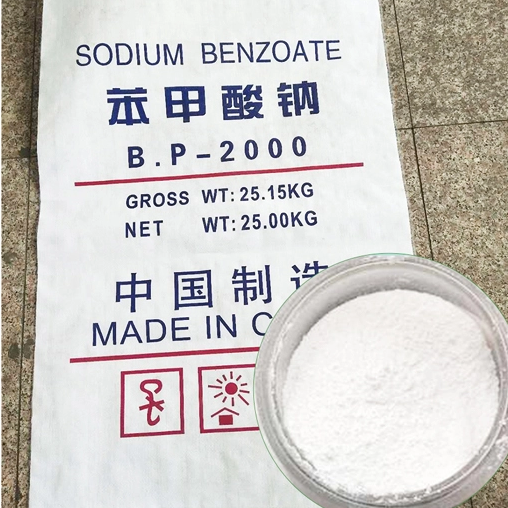close
Choose Your Site
Global
Social Focus
Views: 0 Author: Site Editor Publish Time: 2024-04-24 Origin: Site









Food preservation is a critical aspect of the food industry, ensuring that products remain safe and fresh for consumption. Two commonly used preservatives, sodium benzoate and potassium sorbate, have gained significant attention for their effectiveness in preventing spoilage. In this article, we will take a closer look at sodium benzoate and potassium sorbate, comparing their efficacy in food preservation. By understanding the unique properties and benefits of each preservative, food manufacturers can make informed decisions to enhance the shelf life and quality of their products. Whether you're a consumer curious about the ingredients in your favorite packaged foods or a food industry professional seeking to optimize preservation methods, this article will provide valuable insights into the effectiveness of sodium benzoate and potassium sorbate for food preservation.
Sodium benzoate is a common food preservative that has been used for decades to prevent the growth of bacteria, mold, and yeast in various food and beverage products. It is a white, crystalline powder that is highly soluble in water and has a slightly sweet taste. Sodium benzoate is derived from benzoic acid, which is naturally found in many fruits and vegetables.
Despite its widespread use, there has been some controversy surrounding the safety of sodium benzoate. Some studies have suggested that when combined with certain ingredients, such as citric acid or ascorbic acid, sodium benzoate can form benzene, a known carcinogen. However, the levels of benzene produced are typically very low and well below the safety limits set by regulatory agencies.
To ensure the safety and efficacy of sodium benzoate, the Food and Drug Administration (FDA) has established strict guidelines for its use in food and beverages. These guidelines include limits on the maximum allowable concentration of sodium benzoate and the types of products in which it can be used. The FDA conducts regular inspections and testing to ensure that manufacturers are in compliance with these guidelines.
In addition to its role as a preservative, sodium benzoate also has some other interesting properties. It is often used as a pH adjuster, helping to maintain the acidity or alkalinity of a product. Sodium benzoate is also a common ingredient in medications and cosmetics, where it helps to stabilize and preserve the formulations.
Potassium sorbate is a widely used food preservative that is known for its ability to extend the shelf life of various food products. This compound, which is a potassium salt of sorbic acid, is highly effective in inhibiting the growth of molds, yeasts, and certain bacteria. It is commonly used in the production of cheese, wine, and baked goods, as well as in the preservation of fruits and vegetables.
One of the key advantages of potassium sorbate is its ability to prevent the growth of harmful microorganisms without altering the taste, texture, or nutritional value of the food. It acts by interfering with the metabolic processes of these microorganisms, thereby preventing them from reproducing and causing spoilage. This makes it an ideal choice for food manufacturers who want to ensure the safety and quality of their products.
In addition to its antimicrobial properties, potassium sorbate is also known for its antioxidant properties. It helps to inhibit the oxidation of fats and oils in food, which can lead to rancidity and off-flavors. By preventing the oxidation process, potassium sorbate helps to maintain the freshness and quality of the food for a longer period of time.
When it comes to the safe use of potassium sorbate, it is important to note that it is approved by regulatory authorities such as the Food and Drug Administration (FDA) and the European Food Safety Authority (EFSA). These organizations have established guidelines for the maximum allowable levels of potassium sorbate in various food products to ensure consumer safety. It is important for food manufacturers to adhere to these guidelines and use potassium sorbate responsibly.
While potassium sorbate is generally recognized as safe for consumption, some individuals may have sensitivities or allergies to this compound. It is recommended for those with known allergies to avoid foods that contain potassium sorbate or consult with a healthcare professional before consuming such products.
Sodium benzoate and potassium sorbate are both widely used food preservatives that help prevent spoilage and extend the shelf life of various products. When used in accordance with regulatory guidelines, they are considered safe for consumption. However, it is always important to be mindful of the ingredients in the products we consume and to make informed choices about our diet.Our company also offers other preservatives, such as Calcium Propionate. You can buy them in combination
